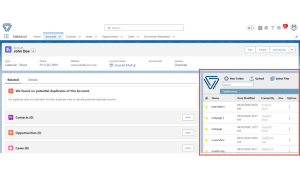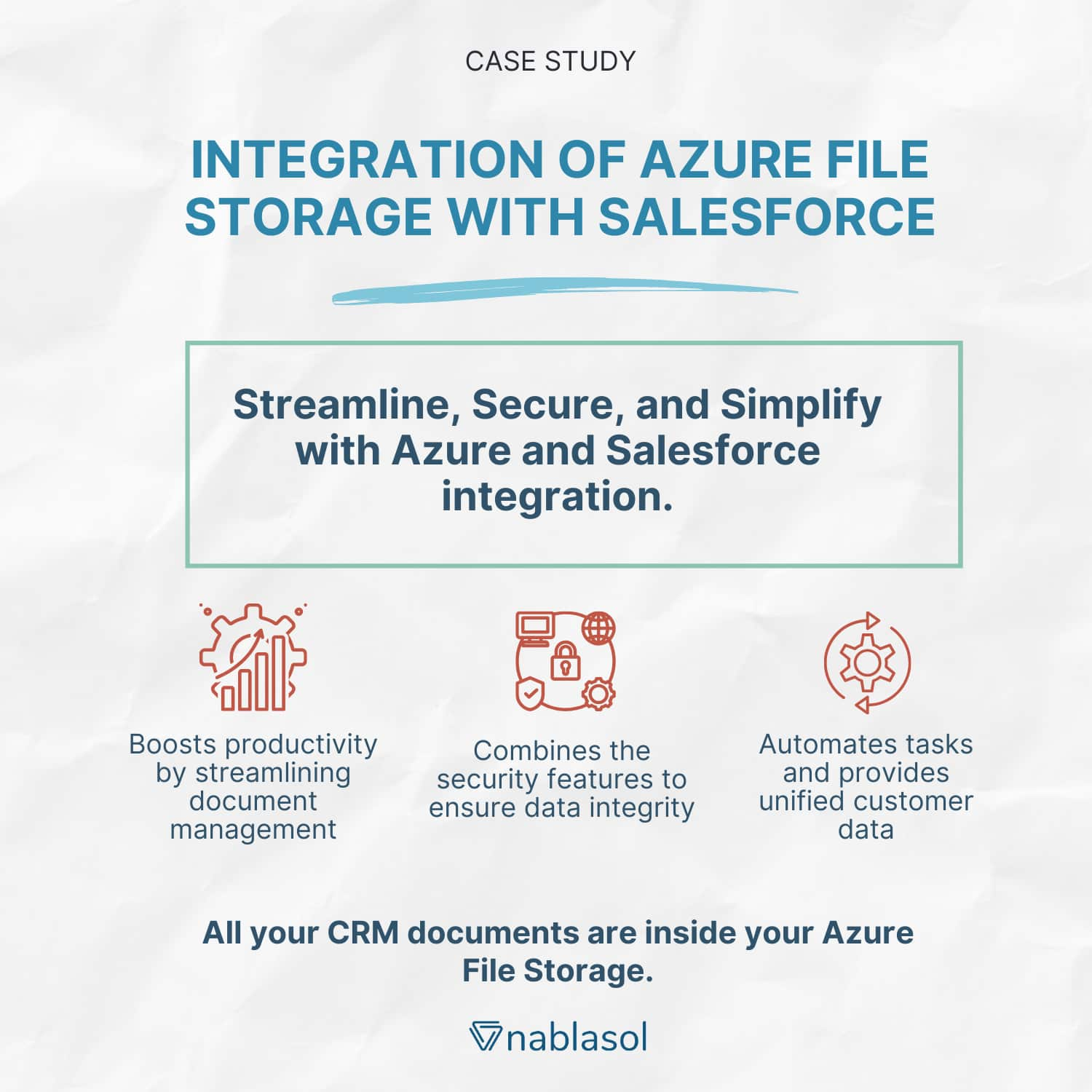Summary:
Integrating Microsoft Azure with Salesforce CRM revolutionized business-related documentation management. By leveraging Microsoft Azure’s File Share Storage Services, this Lightning Web Component (LWC) named AzureDMS, provides a seamless solution for efficient and secured document management, enhancing accessibility, and productivity while streamlining business processes.
Problems to solve:
This integration aims to address several key challenges:
- Unified Customer View: Businesses needed help consolidating customer data scattered across different platforms. This LWC component will provide a comprehensive view of customer information by combining Microsoft Azure and Salesforce CRM data.
- Automated Business Processes: Manual processes are time-consuming and error-prone. This integration sought to automate these processes, which resulted in improved efficiency and accuracy.
- Enhanced Security and Compliance: With increasing concerns about data security and compliance, the integration aims to leverage both platforms’ robust identity management capabilities to ensure a secure and compliant environment.
- Enhanced Flexibility and Scalability: Integrating Salesforce with Microsoft Azure enables flexible and scalable solutions for businesses to meet peak demands without compromising server capacity and performance.
Solution:
The solution involves the development of AzureDMS as a Lightning Web Component (LWC) that utilizes Microsoft Azure’s File Share Storage Services for document management. Key features include:

- Easy management, viewing, and searching of documents.
- Metadata-structured folders for secure file storage.
- Drag-and-drop functionality for file uploads.
- Bulk operations for files and folders, such as uploading, moving, copying, and deleting.
- Easy navigation between folders.
The component comprises custom metadata, Apex classes, related test classes, remote site settings, custom permissions, and permission sets in Salesforce to ensure smooth, secure, and profile-based functioning.
Impact on Business:
This integration of Microsoft Azure with Salesforce CRM will have a profound impact on business operations:
Improved Productivity: The ease of managing documents directly within Salesforce CRM saves time and increases efficiency for employees.
Enhanced Decision-Making: The unified view of customer data and streamlined analytics processes enable better decision-making based on comprehensive insights.
Increased Automation: Automated business processes reduce manual errors and free up resources for more strategic tasks.
Strengthened Security: The integration strengthens security measures and ensures compliance with industry standards, giving businesses peace of mind regarding their data integrity.
Overall, the integration of Microsoft Azure with Salesforce CRM brings benefits to businesses, resulting in empowered CRM capabilities. This integration will streamline documentation management while enhancing flexibility and scalability. This LWC component provides a robust solution for managing documents, significantly enhancing levels of efficiency, productivity, and customer satisfaction in business operations, and driving growth.


